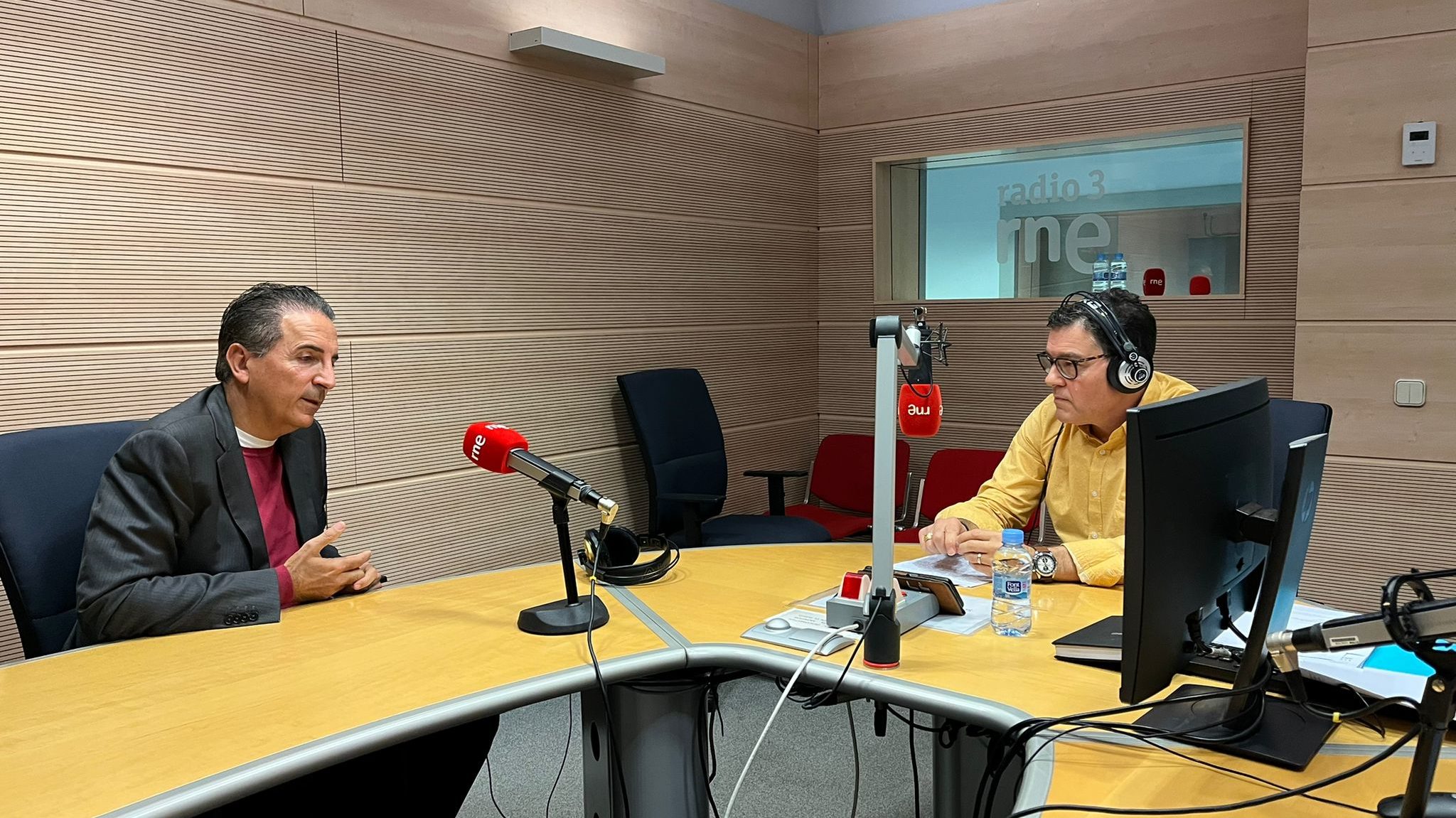Óscar Méndez, CEO of Stratio, has been interviewed by the renowned journalist from Radio Nacional Española, Miguel Ángel Domínguez, about the importance of data management in the future of companies and people. During a frank and didactic twenty minutes, Méndez explained to Miguel Ángel Domínguez the “cosmic” magnitude of the data universe generated by the technologies people regularly use. He highlighted there are already more mobile phones than people in the world and 5,000 million Internet users. A universe that, according to Óscar Méndez, will generate 97 zetabytes of data this year, an immeasurable figure that could be 50 times more bytes of data than stars are in the observable universe.
Asked by the reporter about the role of data management in organizations, Stratio’s CEO pointed out that in a world of inexorably digitalization, “the viability of any company is based on managing their data efficiently.
Adding that digitization will grow to become 40% of the Spanish economy due to new trends such as metaverse. “This increase will occur much sooner than people expect,” said Méndez.
Stratio’s CEO continued explaining that data management applies to any activity and type of company, but especially to SMEs and tourism in Spain. He stated as an example that the choice of a tourist destination is 80%-based on data such as reviews and information on the Internet and mentioned the financial sector, banking and insurance are the most advanced industries as regards data management “because regulators demand that they have their data in order.”
Óscar Méndez also talked about the attractiveness of the countries with technological capabilities, highlighting this will be decisive for the construction of future Industry 4.0 factories, which will be robotized and fitted with sensors and Artificial Intelligence that will allow for a much more efficient production of goods.
During the interview, Stratio’s CEO stressed the big talent pool of Spanish professionals, engineers in particular: “With the right support, Spain could become one of the best countries technology-wise in the world. We have no doubt about it,” he stated.

Óscar Méndez called for more support from the government and large Spanish companies in promoting innovation and more startups, although he qualified there are examples of big organizations such as Banco Santander, BBVA, Telefónica, etc. which “have been clear about the importance of innovation from the beginning and are visionaries in this aspect.”
Stratio’s CEO said Spaniards should overcome the complex that Spanish technology is not as good “because it is not true Spanish technology is at the highest level,” he said. Óscar Méndez stressed we should be proud of the professionalism and value of Spanish engineers. ”There is an incredibly great opportunity to exploit this talent in the right way.”
Miguel Ángel Domínguez asked Stratio´s CEO to explain what is a startup, and the latter replied that “people think these are only small companies.” Méndez specified that Stratio had grown by more than 50% every year and currently has around 500 people working remotely from different regions in Spain.
During the chat, Stratio’s CEO also went into the different types of data, differentiating between structured, or “ordered,” data and unstructured data, such as voice or images, “which store 1,000 times more information than all the structured data on the planet. Humans are not capable of handling such a huge amount of data. Therefore, we will have to rely on Artificial Intelligence agents, which are going to be part of the future of any company or person,” he added.
Regarding data privacy, he denounced that it is intolerable that there are companies creating digital twins of people and that it is absolutely necessary for European regulations to stop them while balancing the need to preserve competitiveness.



